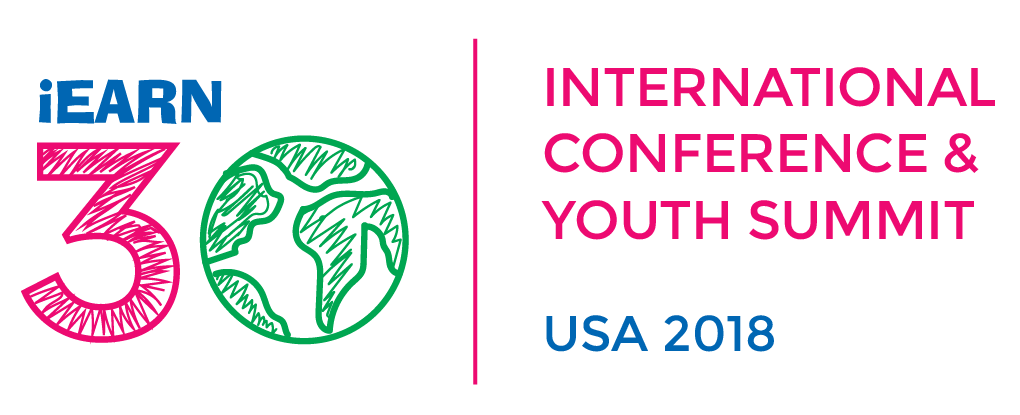Sessions
iEARN Global Learning Circles 2018: Developing Exciting Project Ideas at the iEARN Conference
Barry Kramer
iEARN-USA
Barry Kramer
Barry is an elementary school teacher in Quakertown, New Jersey, USA, who has been a member of iEARN since 1994. During that time, he has participated and facilitated Learning Circles projects and has had his students contribute work to various ongoing projects and forums. In regards to his education, Barry graduated from The University of Pittsburgh with a degree in Speech and Communications in 1980. During the past 38 years Barry has been committed to modeling ways to teach that can meet the changing needs of children. His strong commitment to teacher education is evidenced by the many workshops he has presented locally, statewide, and internationally. His on-going commitment is to use technology to open the classroom to the world community and to engage in research to inform the academic community. Barry has also participated in developing and teaching many online iEARN Professional Development course. In 2009, Barry achieved a Ph.D. in Educational Technology from Lehigh University in Bethlehem, Pennsylvania. Since 2004, Barry has been the Coordinator for the iEARN Global Learning Circles project. Currently, he is also serving on the iEARN-USA Board of Directors.
Chris Hockert
Nickels for Nepal and McConnell School
Chris Hockert
Christine R. Hockert has a Master’s in Education from the University of Tennessee at Chattanooga as well as a Bachelor’s Degree in Business Administration from the University of New Haven. Christine retired from full-time teaching in 2009 and has been working as the computer lab teacher at McConnell Elementary School, Hixson, TN and as a certified substitute teacher for McConnell Elementary, Rivermont Elementary, and Daisy Elementary.
Her students participate in the Early Peoples Symbols Project and Learning Circles Project. Christine has been a member of IEARN since 1998 and has participated in and facilitated many Learning Circles Projects. Christine coordinates and facilitates the Early Peoples Symbols Project along with Abdelaziz Rhazzali and Christine Kolstoe. Both of these projects and many others that she has used in the computer lab utilize Project Based Learning. Students measure their outcomes based upon a grading rubric imbedded into the project template.
Through her association with IEARN she has established a non-profit organization, Nickels for Nepal to provide educational supplies, scholarships, uniforms, and teacher resources to remote village schools in Nepal. Christine is an active volunteer for the Friends of the Chattanooga Public Library. Christine currently serves as First Vice President for National Kappa Kappa Iota, a professional organization of educators.
Type: Interactive Workshop
Location: Room 1306
Date: Thursday
Time: 3:30-4:50 PM
This session is associated with a UN SDG!
This session relates to the iEARN Global Learning Circles iEARN Project!
Session Description
iEARN Global Learning Circles are highly interactive, project-based learning activities among a small number of schools located throughout the world. They have been a standard project offered by iEARN since 1994. Twice a year many teachers and students develop project Ideas and work together to research, share ideas, write stories, exchange opinions, and share their culture.
This interactive workshop will introduce participants to the Learning Circle process and provide a general overview of the entire project. Participants will work together with past Learning Circle facilitators and participants to learn how to develop effective project ideas that engage students and promote collaboration. This process will help teachers to understand how projects based on local curricula and standards can have an inclusive world-wide reaching impact.
What will educators learn and be able to do at the end of the session?
Session Goals:
1. To introduce participants to the Learning Circles model and project;
2. To provide models of effective global collaborative project ideas;
3. To help participants develop a framework for designing original project ideas;
4. To generate feedback and constructive ideas on project development from experienced Learning Circle facilitators and participants;
5. To discuss past research and promote current research for collaborative online learning.
Session Resources
iEARN Global Learning Circles - Powerpoint - Part 1
These are Part 1 of the Presentation Slides for the Interactive Workshop: iEARN Global Learning Circles 2018: Developing Exciting Project Ideas
iEARN Global Learning Circles - PowerPoint Part 2
These are Part 2 of the Presentation Slides for the Interactive Workshop: iEARN Global Learning Circles 2018: Developing Exciting Project Ideas
